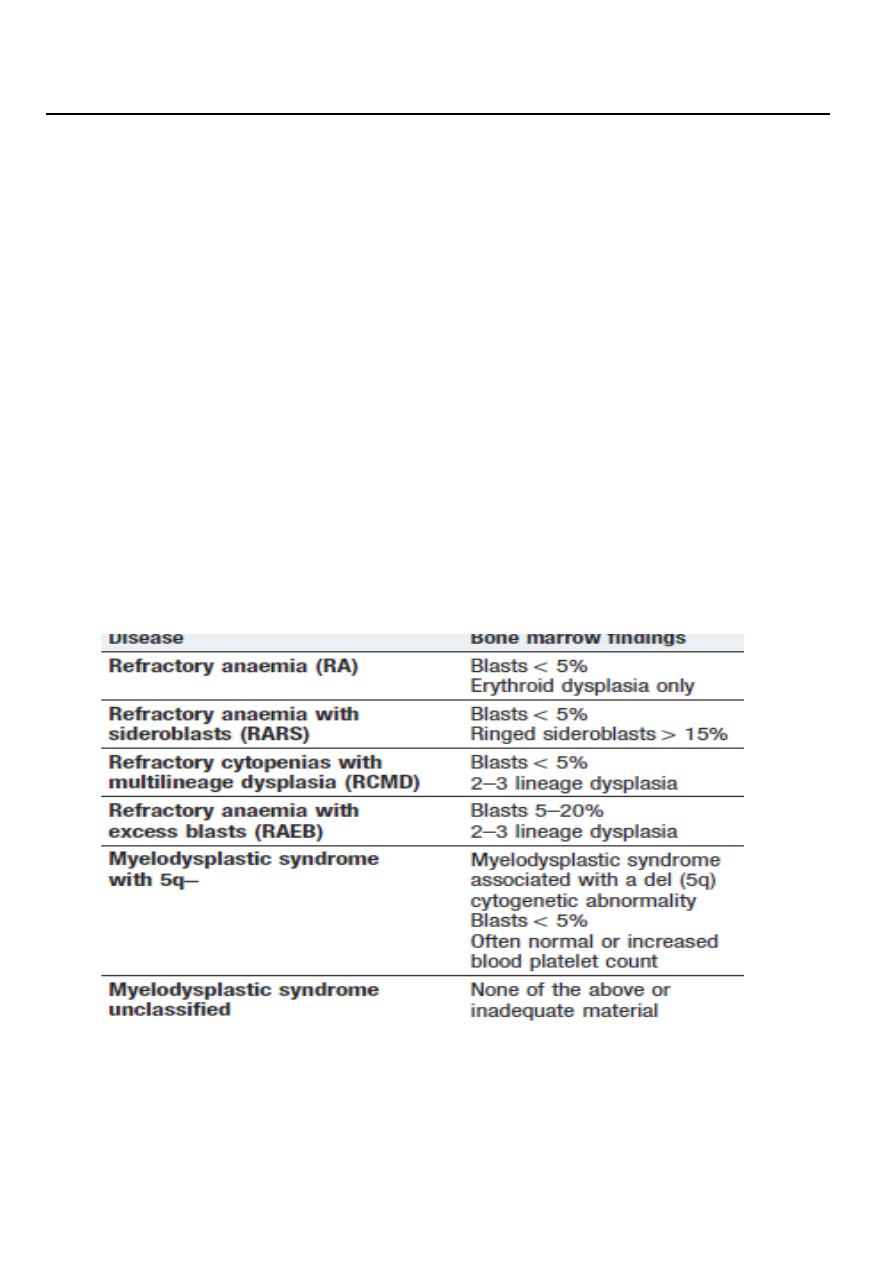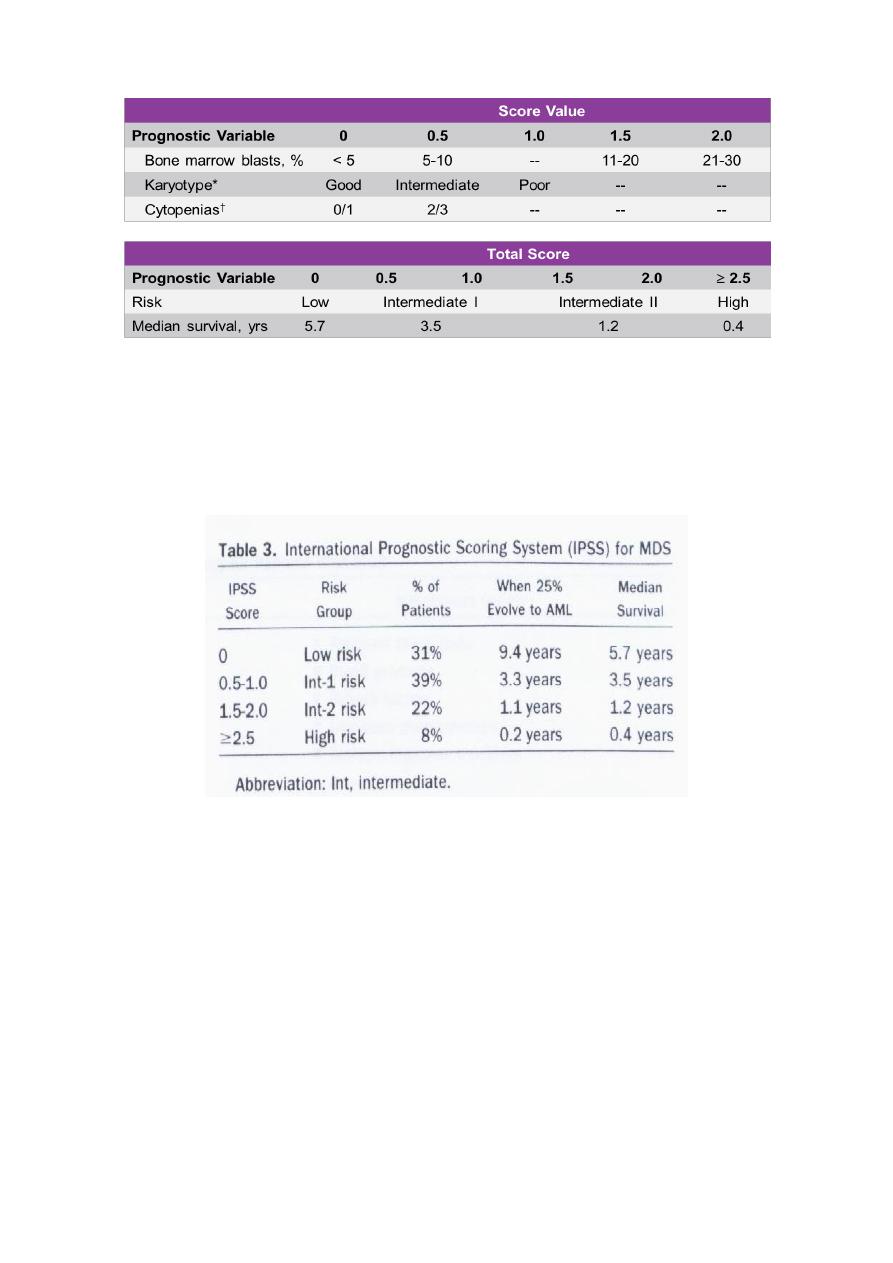
1
Fifth stage
Medicine
i
Lec
افعـن دلاـخ.د
1/11/2015
Myelodysplastic syndrome (MDS)
Myelodysplastic syndrome (MDS) consists of a group of clonal haematopoietic disorders
which represent steps in the progression to the development of leukaemia.
MDS presents with consequences of bone marrow failure (anaemia, recurrent infections or
bleeding),usually in older people (median age at diagnosis is 69 years).
The blood film is characterised by cytopenias and abnormal-looking (dysplastic) blood cells,
including macrocytic red cells and hypogranular neutrophils with nuclear hyper-or
hyposegmentation.
The bone marrow is hypercellular, with dysplastic changes in all three cell lines. Blast cells
may be increased but do not reach the 20% level that indicates acute leukaemia
WHO classification of myelodysplastic syndromes

2
IPSS Is Most Common Tool for Risk Stratification of MDS
*Good = normal, -Y, del(5q), del(20q),, intermediate = other karyotypic abnormalities,,, poor = complex (
3
abnormalities)
or
chromosome
7
abnormalities.
†
Hb < 10 g/dL; ANC < 1800/
L; platelets < 100,000/
L.
International Prognostic Scoring System (IPSS)
Management
For younger patients with higher-risk disease, allogeneic HSCT may afford a cure.
A trial of erythropoietin and granulocyte–colony-stimulating factor (G–CSF) is
recommended in some patients with early disease to improve haemoglobin and white
cell counts.
Hypomethylating agent azacytidine has improved survival by a median of 9 months
for high-risk patients, is recommended for those not eligible for transplantation
y
